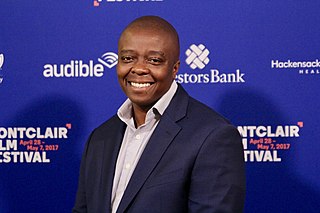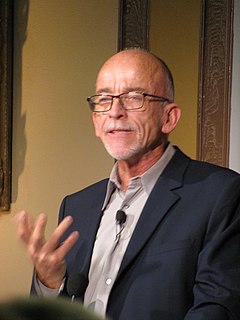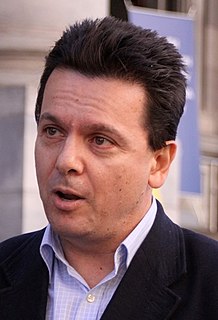A Quote by Yance Ford
I would hate for people to think that 'Strong Island' is just about a family's grief. It is about a family's grief, yes, but it is also an interrogation of our criminal justice system.
Related Quotes
I think grief is a huge subject; it's one of the things that everybody is going to confront in one way or another. There's been a lot of books written about how Americans have an odd way of trying to defer grief or minimize the need to grieve. People used to have a lot more ritual grief in their lives. For the most part, we think of it as a strictly temporal process: you grieve for a time and then you're over [it], but it's also a spatial process. It travels across a map.
I think it's important to encourage young people to tell their own stories and to speak openly about their own experiences with the criminal justice system and the experiences of their family. We need to ensure that the classroom environment is a supportive one so that the shame and stigma can be dispelled.
Grief does not seem to me to be a choice. Whether or not you think grief has value, you will lose what matters to you. The world will break your heart. So I think we’d better look at what grief might offer us. It’s like what Rilke says about self-doubt: it is not going to go away, and therefore you need to think about how it might become your ally.
Our current criminal justice system has no provision for restorative justice, in which an offender confronts the damage they have done and tries to make it right for the people they have harmed. [...] Instead, our system of "corrections" is about arm's-length revenge and retribution, all day and all night.
I think what I was unconsciously expressing in 'Black Rainbow' was a very abstract and metaphorical grief, in the way I had suppressed my grief about my mother dying. In retrospect I realise I started writing 'Mandy' as a sort of antidote to that, to sort of express those emotions, to purge that grief.
One might expect that the families of murder victims would be showered with sympathy and support, embraced by their communities. But in reality they are far more likely to feel isolated, fearful, and ashamed, overwhelmed by grief and guilt, angry at the criminal-justice system, and shunned by their old friends.
The interesting thing about grief, I think, is that it is its own size. It is not the size of you. It is its own size. And grief comes to you. You know what I mean? I’ve always liked that phrase “He was visited by grief,” because that’s really what it is. Grief is its own thing. It’s not like it’s in me and I’m going to deal with it. It’s a thing, and you have to be okay with its presence. If you try to ignore it, it will be like a wolf at your door.
I regularly see constituents, speak to people who feel let down by the justice system quite fundamentally, and these are people who don't make the headlines. These are people who have felt that their sense - their grief, their sense of injustice has been compounded by a system that just doesn't work, that just doesn't listen to victims, that effectively disempowers them all too often.




































